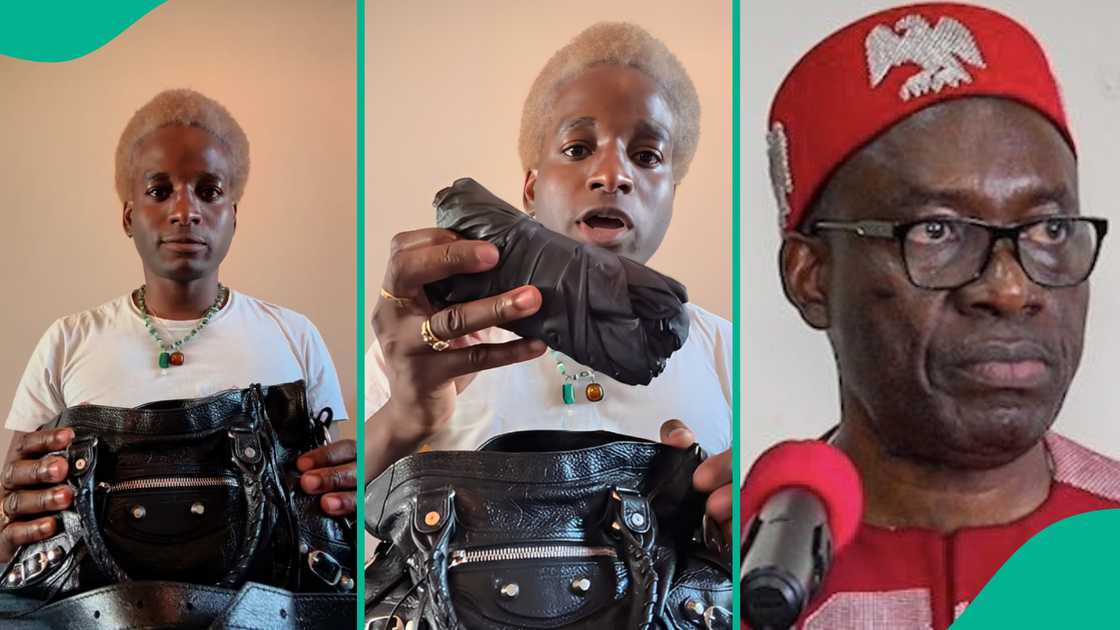Rudeboy Expresses Views on Modern Relationships and Shared Responsibilities
Popular Nigerian singer Paul Okoye, better known as Rudeboy, recently opened up about relationships and the evolving dynamics of partnership between men and women. In a candid take on social media, the artiste weighed in on expectations around financial responsibilities and mutual support within couples, sparking conversations among fans in Nigeria, Ghana, and across Africa.
Breaking Stereotypes: Men, Women, and Responsibilities at Home
According to Rudeboy, society has long placed the burden of providing and managing household responsibilities on men. He acknowledged this traditional view, saying it is generally assumed that men must “do everything” when it comes to supporting the family. Yet, he pointed out that the dynamic of a happy home does not have to rest solely on the man’s shoulders.
Rudeboy emphasized that when women occasionally step in to handle family or financial matters, it brings a unique sense of joy, fulfilment, and balance to the relationship. He described these moments as not just helpful, but as a “massive flex”—a demonstration of strength and solidarity that benefits both partners.
“I know men are meant to do everything, responsibilities and all, but the biggest flex is when your woman, once in a blue moon, takes care of some certain things… that’s a massive FLEX.”
— Rudeboy, via Instagram Stories
Changing Conversations About Partnerships
In Nigerian and wider West African culture, gender roles in relationships have been a topic of debate in recent years. While men are still primarily expected to be the breadwinners, more women are stepping forward to share financial and domestic responsibilities. Rudeboy’s comments quickly resonated on social media, with many users sharing their own stories, opinions, and even playful memes around the topic.
A Lagos-based relationship coach, Ijeoma O., noted, “Partnerships work best when both sides feel seen and supported. Rudeboy is speaking to the reality that it’s not just money—it’s the intention and effort behind the gesture that matters.”
Why Does This Matter to West Africans?
The pressures of modern living—rising costs, demanding jobs, and social expectations—have made traditional gender roles less sustainable for many couples in Nigeria, Ghana, and beyond. Family experts argue that shared responsibilities, even if occasional, can strengthen bonds, reduce stress, and help partners develop mutual respect.
- Financial Realities: A joint approach to managing household expenses can ease the pressure on one individual and foster trust.
- Emotional Balance: Acts of support, even small ones, help create an atmosphere of partnership and appreciation within the relationship.
- Changing Expectations: The new generation of West African couples is increasingly open to flexible arrangements, prioritizing happiness over rigid traditions.
Public Responses and Social Media Buzz
Rudeboy’s post sparked lively discussion online, with many fans and relationship bloggers siding with his viewpoint. On X (formerly Twitter) and Instagram, users debated how often women should contribute and what “once in a blue moon” really means in today’s context. Some pointed out that these occasional contributions might be even more impactful because they challenge long-held assumptions.
A comment from a Ghanaian user read: “It’s about partnership, not competition. When my wife pays the NEPA bill, I feel loved and supported.” Others emphasized that financial support isn’t the only form of help—emotional labor, taking care of children, or planning family events are equally significant.
Expert Analysis: Is This Trend Here to Stay?
According to relationship experts, African households are increasingly adapting to a model where teamwork, rather than fixed gender roles, leads to stronger marriages. A recent study by the African Centre for Gender and Social Development (2023) shows that households practicing shared financial responsibilities report higher levels of mutual satisfaction and lower stress levels.
At the same time, traditionalists argue that cultural values should not be abandoned entirely, advocating for a balance that respects heritage while adapting to present realities.
Local Voices: Everyday Perspectives
From the bustling streets of Lagos to Accra’s vibrant neighborhoods, couples echo Rudeboy’s sentiments in different ways. A young Nigerian teacher shared, “Sometimes I just buy groceries or fuel for my husband’s car—not because I have to, but because it feels good to do something unexpected for him.” Similarly, a banker in Kumasi noted, “Even if it’s just paying for dinner once in a while, it breaks the routine and reminds us that we’re a team.”
Broader Context: Beyond Romance
While Rudeboy’s comments center on romantic relationships, the larger conversation on social media includes friends, siblings, and even work colleagues, reflecting an Africa-wide shift toward cooperation and support across all relationships. Analysts say that as more women gain financial independence, the expectation for men to “do it all” is being challenged in even more areas of life.
Meanwhile, in the Nigerian Entertainment Scene…
In related entertainment news, veteran Nollywood actor Yemi Solade made headlines with his remarks about the realities of earning a living through acting. Speaking on the Honest Bunch podcast, Solade revealed that for most actors, pay from film roles alone is rarely enough to afford luxury purchases, hinting at the financial challenges faced by professionals in the creative industry. His frankness echoed Rudeboy’s call for more honest discussions about money and expectations—in relationships and in the workplace.
Conclusion: Building Stronger Partnerships for Modern Times
Rudeboy’s reflections highlight a major shift happening within West African relationships—the move toward collaboration, empathy, and shared responsibility. Whether occasional or regular, the gestures of support between partners matter far more than outdated expectations. As more couples embrace this flexible approach, it may well lead to stronger families and happier homes across Nigeria, Ghana, and the continent.
What are your thoughts? Are relationships in Nigeria and across Africa truly changing, or are traditional roles still holding strong in your community? Share your perspective in the comments and let’s keep the conversation going!
For general support or other inquiries, contact support@nowahalazone.com.
Join the conversation on social media—follow us on Facebook, X (Twitter), and Instagram for the latest updates and trending stories!










